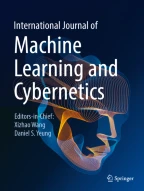Abstract
This paper is concerned with the finite-time synchronization problem for a class of delayed competitive neural networks with discontinuous activations. Using the theory of differential inclusions, nonsmooth analysis, inequality techniques and a generalized finite-time convergence theorem, new criteria are established to ensure the finite-time stability of the considered error system, and thus the finite-time synchronization between the drive system and the response system are realized. Finally, two examples with numerical simulations are presented to illustrate the effectiveness of the proposed synchronization criteria.
Similar content being viewed by others
Explore related subjects
Discover the latest articles, news and stories from top researchers in related subjects.References
Hopfield JJ, Tank DW (1984) Neurons with graded response have collective computational properties like those of two-state neurons. Proc Nat Acad Sci 79:3088–3092
Forti M, Nistri P (2003) Global convergence of neural networks with discontinuous neuron activations. IEEE Trans Circuits Syst I(50):1421–1435
Hunt KJ, Sbarbaro D, Żbikowski R, Gawthrop PJ (1992) Neural networks for control systems—a survey. Automatica 28:1083–1112
Yang X, Yang Z, Nie X (2014) Exponential synchronization of discontinuous chaotic systems via delayed impulsive control and its application to secure communication. Commun Nonlinear Sci Numer Simul 19:1529–1543
Lu W, Chen T (2006) Dynamical behaviors of delayed neural network systems with discontinuous activation functions. Neural Comput 18:683–708
Forti M, Nistri P, Papini D (2005) Global exponential stability and global convergence infinite time of delayed neural networks with infinite gain. IEEE Trans Neural Netw 16:1449–1463
Forti M, Grazzini M, Nistri P, Pancioni L (2006) Generalized Lyapunov approach for convergence of neural networks with discontinuous or non-Lipschitz activations. Phys D 214:88–99
Papini D, Taddei V (2005) Global exponential stability of the periodic solution of a delayed neural network with discontinuous activations. Phys Lett A 343:117–128
Liu X, Cao J (2010) Robust state estimation for neural networks with discontinuous activations. IEEE Trans Syst Man Cybern 40:1425–1437
Duan L, Huang L, Guo Z (2014) Stability and almost periodicity for delayed high-order Hopfield neural networks with discontinuous activations. Nonlinear Dyn 77:1469–1484
Liu J, Liu X, Xie W (2012) Global convergence of neural networks with mixed time-varying delays and discontinuous neuron activations. Inform Sci 183:92–105
Duan L, Huang L, Guo Z (2016) Global robust dissipativity of interval recurrent neural networks with time-varying delay and discontinuous activations. Chaos 26:073101
Meyer-Bäse A, Ohl F, Scheich H (1996) Singular perturbation analysis of competitive neural networks with different time scales. Neural Comput 8:1731–1742
Meyer-Bäse A, Botella G, Rybarska-Rusinek L (2013) Stochastic stability analysis of competitive neural networks with different time-scales. Neurocomputing 118:115–118
Nie X, Cao J (2009) Multistability of competitive neural networks with time-varying and distributed delays. Nonlinear Anal Real World Appl 10:928–942
Engel PM, Molz RF (1998) A new proposal for implementation of competitive neural networks in analog hardware. In: Proceedings of the 5th Brazilian Symposium on Neural Networks, pp 186–191
Lou X, Cui B (2007) Synchronization of competitive neural networks with different time scales. Phys A 380:563–576
Gu H (2009) Adaptive synchronization for competitive neural networks with different time scales and stochastic perturbation. Neurocomputing 73:350–356
Gan Q, Hu R, Liang Y (2012) Adaptive synchronization for stochastic competitive neural networks with mixed time-varying delays. Commun Nonlinear Sci Numer Simul 17:3708–3718
Li Y, Yang X, Shi L (2016) Finite-time synchronization for competitive neural networks with mixed delays and non-identical perturbations. Neurocomputing 185:242–253
Cortés J (2008) Discontinuous dynamical systems: a tutorial on solutions, nonsmooth analysis, and stability. IEEE Control Syst Mag. 28:36–73
Filippov A (1988) Differential equations with discontinuous righthand sides. Kluwer Academic Publishers, Dordrecht
Hardy GH, Littlewood JE, Polya G (1988) Inequalities. Cambridge University Press, London
Kisielewicz M (1991) Differential inclusions and optimal control, mathematics and its applications. Kluwer Academic Publishers, Dordrecht
Yang X (2014) Can neural networks with arbitrary delays be finite-timely synchronized? Neurocomputing 143:275–281
Wang H, Zhu Q (2015) Finite-time stabilization of high-order stochastic nonlinear systems in strict-feedback form. Automatica 54:284–291
Shi L, Yang X, Li Y, Feng Z (2016) Finite-time synchronization of nonidentical chaotic systems with multiple time-varying delays and bounded perturbations. Nonlinear Dyn 83:75–87
Liu X, Chen T, Cao J, Lu W (2011) Dissipativity and quasi-synchronization for neural networks with discontinuous activations and parameter mismatches. Neural Netw 24:1013–1021
Liu X, Cao J (2011) Local synchronization of one-to-one coupled neural networks with discontinuous activations. Cogn Neurodyn 5:13–20
Shen J, Cao J (2011) Finite-time synchronization of coupled neural networks via discontinuous controllers. Cogn Neurodyn 5:373–385
Zhu Q, Cao J (2011) Adaptive synchronization under almost every initial data for stochastic neural networks with time-varying delays and distributed delays. Commun Nonlinear Sci Numer Simul 16:2139–2159
Yang X, Lu J (2016) Finite-time synchronization of coupled networks with markovian topology and impulsive effects. IEEE Trans Autom Control 61:2256–2261
Zhang H, Wang J, Wang Z, Liang H (2015) Mode-dependent stochastic dynchronization for markovian coupled neural networks with time-varying mode-delays. IEEE Trans Neural Netw Learn Syst 26:2631–2634
Pan Y, Yu H, Er MJ (2014) Adaptive neural PD control with semiglobal asymptotic stabilization guarantee. IEEE Trans Neural Netw Learn Syst 25:2264–2274
Pan Y, Liu Y, Xu B, Yu H (2016) Hybrid feedback feedforward: an efficient design of adaptive neural network control. Neural Netw 76:122–134
Acknowledgements
We would like to thank the editors and the anonymous reviewers for carefully reading the original manuscript and for the constructive comments and suggestions to improve the presentation of this paper.
Author information
Authors and Affiliations
Corresponding author
Additional information
This work was supported by the National Natural Science Foundation of China (11371127, 61572035, 61170059), Key Program of Scientific Research Fund for Young Teachers of Anhui University of Science and Technology (QN201605), Doctoral Fund of Anhui University of Science and Technology (11668) and the Key Program of University Natural Science Research Fund of Anhui Province (KJ2017A088).
Rights and permissions
About this article
Cite this article
Duan, L., Fang, X., Yi, X. et al. Finite-time synchronization of delayed competitive neural networks with discontinuous neuron activations. Int. J. Mach. Learn. & Cyber. 9, 1649–1661 (2018). https://doi.org/10.1007/s13042-017-0670-z
Received:
Accepted:
Published:
Issue Date:
DOI: https://doi.org/10.1007/s13042-017-0670-z
